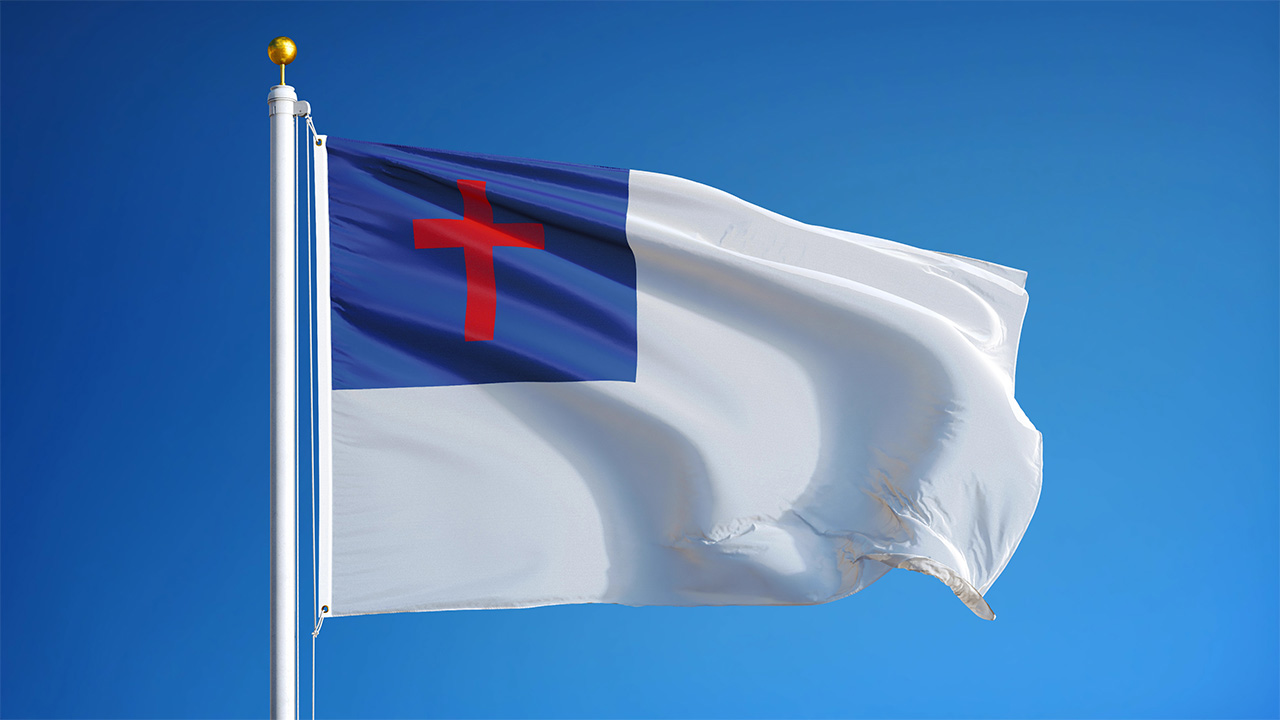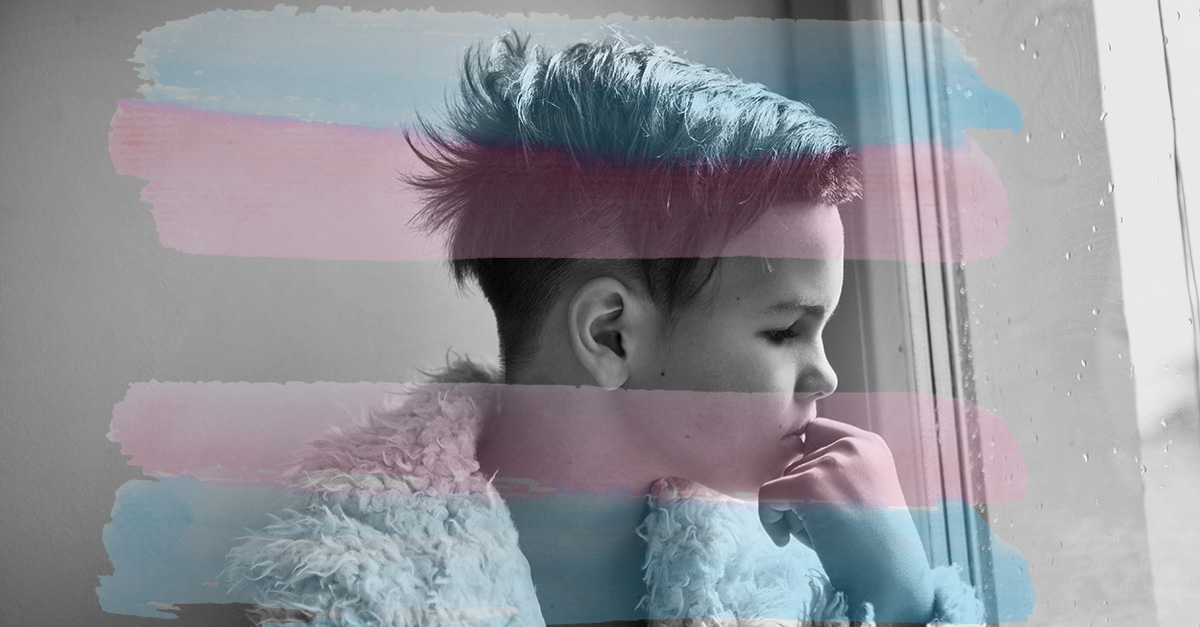


Get a free copy of Parental Rights & Education when you subscribe to our newsletter!

The Supreme Court today ruled 9-0 in favor of Camp Constitution, a Christian civic group that was excluded from Boston’s City Hall flagpole program after it indicated it wanted to raise the Christian flag. The Court found that the city had discriminated against the group and violated its constitutional rights by favoring secular groups over religious ones in a public forum.
Boston has historically allowed all manner of other flags to be flown in front of City Hall, including the flags of the LGBT and Black Lives Matter movements, communist China and Cuba, and Metro Credit Union, a local community bank.
Justice Breyer delivered the opinion for the Court in the case of Harold Shurtleff v. City of Boston, finding that Boston, by policy and practice, had always run its flagpole application and selection process as one of “private” speech rather than “government” speech. In fact, they had approved all flag raisings “without exception” until Camp Constitution came along.
He wrote: “Boston concedes that it denied Shurtleff’s request solely because the Christian flag he asked to raise ‘promot[ed] a specific religion.’ …Under our precedents, and in view of our government-speech holding here, that refusal discriminated based on religious viewpoint and violated the Free Speech Clause.”.
Justice Kavanaugh wrote a concurring opinion summing up the Court’s point: “Under the Constitution, a government may not treat religious persons, religious organizations, or religious speech as second-class.”
The unanimous decision bodes well for future and pending religious liberty cases, including the case of Kennedy v. Bremerton School District, according to George Washington professor and constitutional law expert Jonathan Turley.
{Published October 4, 2021} The U.S. Supreme Court has agreed to hear a petition by Christian civic group Camp Constitution, which was prohibited from displaying a Christian flag at Boston’s City Hall while flags representing other religions and political viewpoints were allowed.
In a miscellaneous orders list released on September 30, the High Court granted certiorari without comment in the case of Shurtleff v. Boston. Harold Shurtleff filed the lawsuit against the city of Boston after city officials refused to allow Camp Constitution to fly a “Christian flag” on a flag pole outside Boston City Hall on Constitution Day in 2017, while allowing other organizations to fly flags that displayed diverse religious and political viewpoints, including the Turkish flag, which bears Islamic imagery, as well as pride flags representing LGBTQ individuals.
Lower courts have successively ruled against Shurtleff, finding that the city did not violate the Constitution on the basis that government speech is not private speech. “The city has never displayed such a flag, and as such, this pioneering elevation of an ‘important symbol’ of the Christian heritage would come without the secular context or importance that the passage of time may have afforded other displays,” wrote Justice Bruce Selya in an opinion for a three judge panel for the First Circuit Court of Appeals.
In a press release, Liberty Counsel, which represents the plaintiff, noted that 284 applications to fly flags at City Hall have been made and all were approved, except that of Camp Constitution. “Boston had never censored any flag until this case,” the law firm noted.
The flag in question is white with a blue square in the upper corner and a red cross, and it contains no writing. “Under oath, the city official testified the flag would have been approved if the application did not refer to it as a ‘Christian flag.’ The word “Christian” on the application alone triggered the censorship.”
Mat Staver, founder and chairman of Liberty Counsel, expressed confidence that the Supreme Court will rule in favor of the plaintiffs and the principle of equal protection, as it has in cases involving states having different rules for churches and secular organizations during the COVID lockdowns.
“We look forward to the U.S. Supreme Court hearing Boston’s unconstitutional discrimination against Camp Constitution’s Christian viewpoint. The city cannot deny the Christian flag because it is ‘Christian’ and allow every other flag to fly on its flag poles,” Stave said. “Censoring religious viewpoints in a public forum where secular viewpoints are permitted is unconstitutional and this case will set (a) national precedent.”

The third flagpole at Boston’s City Hall is designated to serve as a “public forum,” and through the years Boston officials have never denied any flag or message that someone has asked to be hoisted up that flagpole. These include messages communicated by the “Chinese Progressive Association,” the rainbow flag of Boston Pride, and the pink and blue flag representing the transgender movement. The city has also flown the flags and messages of private community groups from other countries, including Communist China and Cuba. No flag has ever been denied — except that of Camp Constitution. And it was denied in dramatic fashion, with city officials announcing their decision to censor the flag just before the flag raising was to occur on Constitution Day in 2017. There is no dispute as to why it was censored — Boston officials admitted under oath that it was because the flag was described as a Christian flag.
The Supreme Court has ruled repeatedly over the last year that government must remain neutral in its treatment of religious and secular activities. “…government regulations are not neutral and generally applicable, and therefore trigger strict scrutiny under the Free Exercise Clause, whenever they treat any comparable secular activity more favorably than religious exercise,” the Supreme Court wrote in its majority opinion in Tandem v. Newsom, its fifth ruling in less than a year attempting to hammer home this constitutional reality.
A flag depicts a viewpoint, but flying that flag is also an activity. As such, if the state of Massachusetts is willing to fly LGBT pride flags and flags relaying the messages of communist governments, despite the fact that not all city residents agree with the LGBT movement or communist ideology, then it can fly a Christian flag.
By allowing pride flags, for example, to be temporarily flown on its third flagpole but not the Christian flag, Boston is endorsing a certain worldview while rejecting the viewpoint of Camp Constitution. That the viewpoint involves Christianity shouldn’t matter, as the city has accepted and temporarily flown flags that bear religious symbolism and messages.
Moreover, the mission of Camp Constitution is to simply educate about the Judeo-Christian roots of not only the U.S. Constitution but also the city of Boston, a history that has been long reflected within the city’s own motto, Sicut Patribus Sit Deus Nobis, which, translated, means, “God be with us as he was with our fathers.” That motto is part of the city’s flag, which flies daily on city property. Camp Constitution’s intent is to highlight history, not to establish a religion on government property.
Now, if the government chose not to allow the LGBT flags or any other viewpoint flag to fly on city property, then not allowing the Christian flag would make sense. The third flagpole is described as a “public forum,” and therefore all viewpoints represented within the public should be welcome — or none should be.
Unfortunately, this has become a common occurrence where LGBT pride is touted as a belief and a worldview everyone should accept and endorse, including the government, while Christianity and other non-favored viewpoints are relegated to second-class status. LGBT pride flags represent a stance on a moral and religious issue and an endorsement of a particular view. As such, it is therefore unacceptable for the government to support one viewpoint and not all others.
Christian conservative news and issues that matter. Curated just for you!
